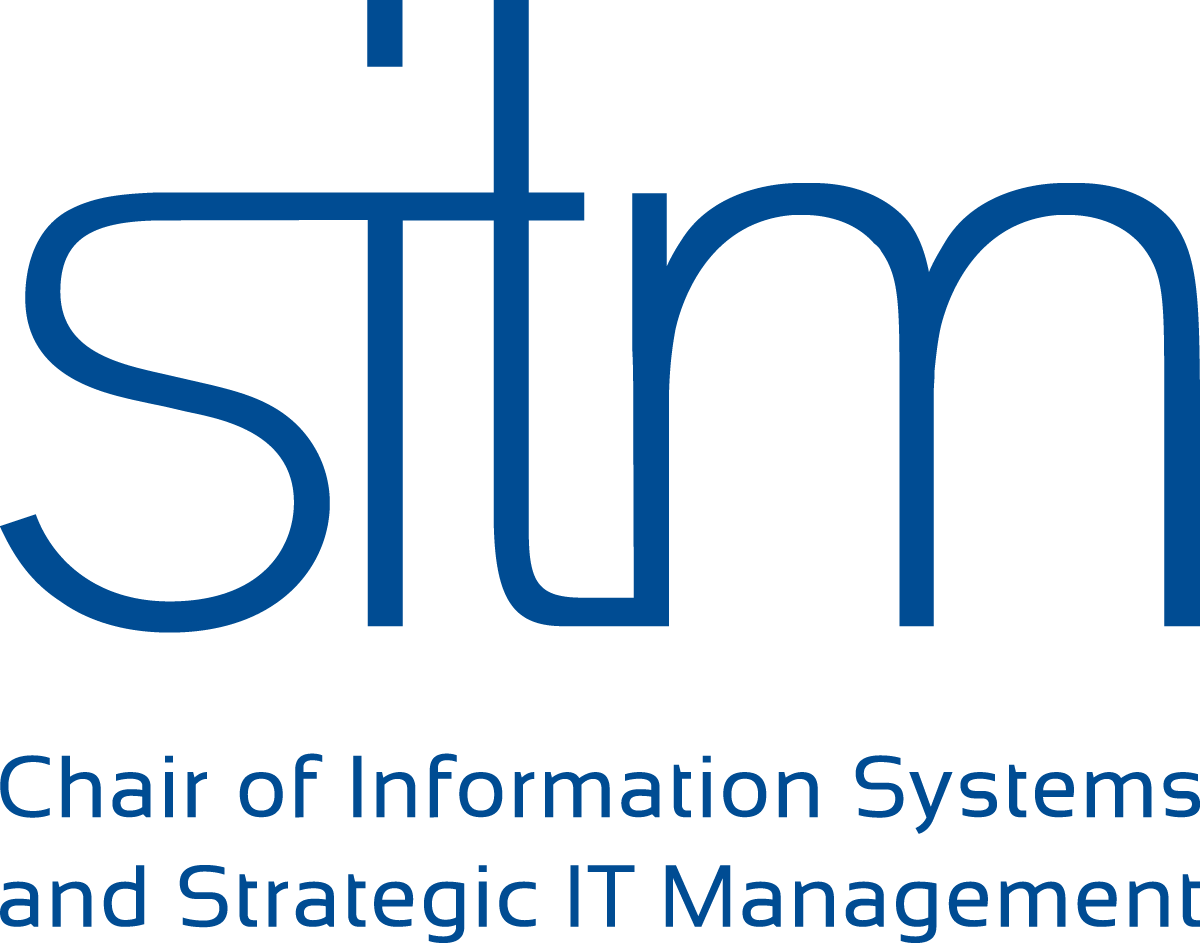Winter Semester 23/24

Lecture
IS Research Fundamentals (MSc)
- Lecturer:
- Prof. Dr. Frederik Ahlemann
- Alexandar Schkolski, M.Sc.
- Contact:
- Term:
- Winter Semester 2023/2024
- Cycle:
- Wintersemester
- Time:
- Di. 10:15-11:45
- Room:
- R09 R04 H02
- Start:
- 10.10.2023
- End:
- 30.01.2024
- Language:
- English
- LSF:
- Lecture in LSF
- Participants:
Description:
The lecture "IS Research Fundamentals" is designed to provide students with an opportunity to build up basic theoretical and methodological skills needed to conceptualize, conduct, and communicate their own research. To do so, the course will familiarize students with the essential triad consisting of topic, methods, and theories. While selecting an exciting topic is a fundamental anchor for research's relevance, a research's ability to provide rigorous results depends on a sound command of theories and methods. In this context, theories provide the researcher a solid basis by summarizing current knowledge and allowing for a precise investigation and definition of their topic's underlying phenomenon. They also provide the students with a theoretical lens to investigate their topics from the perspective they are most interested in. Complementary to this, methods afford the student with the ability to produce reliable results which allow her/him to derive both meaningful and trustworthy conclusions. This way they can make sure that their results are not only interesting, but also scientifically valid. To support students in their preparation for their master theses, the course will introduce the most common methods used in research by looking at examples from the Information Systems discipline. This includes how to carry out a literature review as well as qualitative (e.g., case study research) and quantitative (e.g, survey-based research) methods of empirical research. Based on the selected readings, the course will highlight a selection of theories used in IS research. Students will learn how the studies build up (or build their own) theories, how to use these appropriately, as well as how to contribute to them. Students have to prepare for discussion sessions by reading and summarizing selected seminal papers which provide deeper insights into methods and theories of IS research or exemplars thereof. Moreover, optional readings are provided for each session to facilitate students’ learning experience and to help deepen and extend the topics discussed in class
Learning Targets:
Students
- are able to understand the relevance of methods and theories in meaningful research
- have knowledge of the most common methods and theories used in IS research
- understand of the core phenomena in IS
- are able to prepare and execute own research project (e.g., master thesis)
- have a fundamental understanding of the basic quality criteria for scientific research
Outline:
- The What, How and Why: Scientific Thinking, Research Process, Philosophy of Science
- Scientific Writing and Publishing: Paper structures, Publishing Process, Reviews (Exam)
- Research Design I - Topics: Domains of IS, Fundamentals, Basic Research Design
- Research Design II - Theories: Definition and Concepts, Building on Theory, Contributing to Theory
- Research Design III - Methods: Research Design revisited, Data Collection, Data Analysis
Literature:
- Bacharach, S.B. 1989. "Organizational Theories: Some Criteria for Evaluation," Academy of Management Review (14:4), pp. 496-515.
- Banker, R.D., and Kauffman, R.J. 2004. "The Evolution of Research on Information Systems: A Fiftieth-Year Survey of the Literature in Management Science," Management Science (50:3), pp. 281-298.
- Bhattacherjee, A. 2012. Social Science Research: Principles, Methods, and Practices, (2. ed.). Tampa, FL, USA: Global Text Project.
- Carpenter, M.A. 2009. "Editor's Comments: Mentoring Colleagues in the Craft and Spirit of Peer Review," Academy of Management Review (34:2), pp. 191-195.
- Fettke, P. 2006. "State-of-the-Art Des State-of-the-Art: Eine Untersuchung der Forschungsmethode „Review“ Innerhalb der Wirtschaftsinformatik," Wirtschaftsinformatik (48:4), pp. 257-266.
- Gregor, S. 2006. "The Nature of Theory in Information Systems," MIS Quarterly (30:3), pp. 611-642.
- Kitchenham, B. 2004. "Procedures for Performing Systematic Reviews," Keele University, Department of Computer Science, Keele, UK.
- Lepak, D. 2009. "Editor's Comments: What IS Good Reviewing?," Academy of Management Review (34:3), pp. 375-381.
- Mingers, J. 2001. "Combining IS Research Methods: Towards a Pluralist Methodology," Information Systems Research (12:3), pp. 240-259.
- Orlikowski, W.J., and Baroudi, J.J. 1991. "Studying Information Technology in Organizations: Research Approaches and Assumptions," Information Systems Research (2:1), pp. 1-28.
- Palvia, P., Leary, D., Mao, E., Midha, V., Pinjani, P., and Salam, A.F. 2004. "Research Methodologies in MIS: An Update," Communications of the Association for Information Systems (14:24), pp. 526-542.
- Straub, D.W. 2009. "Why Top Journals Accept Your Paper," MIS Quarterly (33:3), pp. iii-x.
- Sutton, R.I., and Staw, B.M. 1995. "What Theory Is Not," Administrative Science Quarterly (40:3), pp. 371-384.
- Truex, D., Holmström, J., and Keil, M. 2006. "Theorizing in Information Systems Research: A Reflexive Analysis of the Adaptation of Theory in Information Systems Research," in: Journal of the Association for Information Systems. Association for Information Systems, pp. 797-821.
- Webster, J., and Watson, R.T. 2002. "Analyzing the Past to Prepare for the Future: Writing a Literature Review," MIS Quarterly (26:2), pp. xiii-xxiii.
- Wilde, T., and Hess, T. 2007. "Forschungsmethoden der Wirtschaftsinformatik - Eine Empirische Untersuchung," Wirtschaftsinformatik (49:4), pp. 280-287
Methods of Assessment:
Final written examination covering the learning objectives of the lecture (duration 90 minutes).
Formalities:
Based on the selected readings, the course will also highlight a selection of theories used in IS research. Students will learn how the studies build up (or build their own) theories, how to use these appropriately, as well as how to contribute to them. Students have to prepare for sessions by reading and summarizing selected seminal papers which provide deeper insights into methods and theories of IS research or exemplars thereof. Moreover, optional readings are provided for each session to facilitate students’ learning experience and to help deepen and extend the topics discussed in class.

